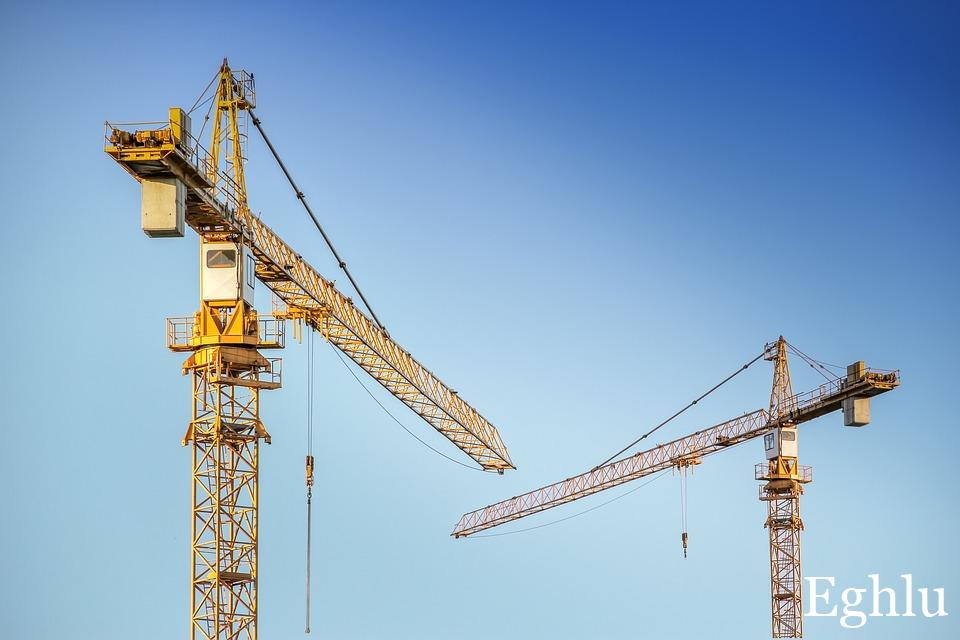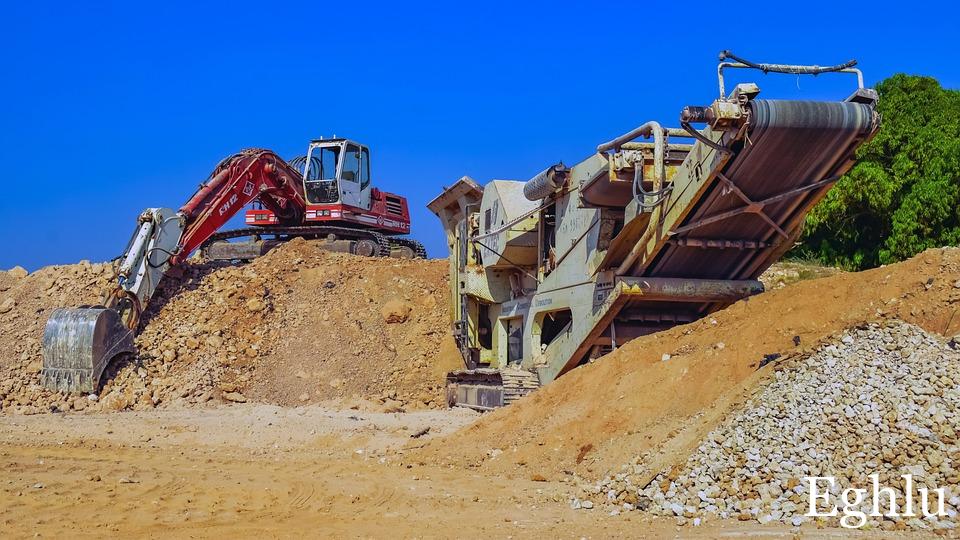Top 20 Tips to Rent Construction Equipment: Maximize Efficiency and Save Money!
Introduction
Construction projects often require the use of specialized equipment to get the job done efficiently and effectively. However, not all contractors and construction companies have the budget to purchase all the necessary equipment outright. This is where renting construction equipment comes in handy.
Renting construction equipment can be a cost-effective and convenient solution for many construction projects. It allows you to access a wide range of equipment without the high upfront costs of purchasing them. However, renting equipment can also come with its own set of challenges, such as knowing what equipment to rent, where to rent from, and how to ensure you’re getting the best deal possible.
In this article, we’ll provide you with 20 top tips to help you maximize efficiency and save money when renting construction equipment. Whether you’re a seasoned contractor or a DIY enthusiast, these tips will help you navigate the rental process and make the most out of your construction project.
1. Determine Your Equipment Needs
Before you start looking for construction equipment to rent, it’s essential to determine your specific equipment needs. Make a list of all the equipment you’ll need for your project, including the type and size of each piece. This will help you stay organized and focused when searching for rentals.
2. Identify Reputable Rental Companies
When renting construction equipment, it’s crucial to choose reputable rental companies that offer high-quality equipment and excellent customer service. Look for companies with a good reputation in the industry and read reviews from past customers to ensure you’re working with a reliable partner.
3. Compare Rental Rates
Don’t settle for the first rental company you come across. Take the time to compare rental rates from different companies to ensure you’re getting the best deal possible. Keep in mind that the cheapest option may not always be the best, so consider the overall value and quality of the equipment when making your decision.
4. Consider Long-Term Rentals
If you anticipate needing construction equipment for an extended period, consider opting for long-term rentals. Many rental companies offer discounts for long-term rentals, which can help you save money in the long run. Be sure to discuss your project timeline and budget with the rental company to find the best rental option for your needs.
5. Inspect Equipment Before Renting
Before renting construction equipment, always inspect the equipment thoroughly to ensure it’s in good working condition. Look for any visible damage, signs of wear and tear, or missing parts that could affect the equipment’s performance. Don’t be afraid to ask the rental company for maintenance records or proof of regular inspections to ensure the equipment is well-maintained.
6. Opt for Insurance Coverage
Construction projects can be unpredictable, and accidents can happen. To protect yourself and your investment, consider opting for insurance coverage when renting construction equipment. Most rental companies offer insurance options that can cover damage, theft, or other unforeseen events, giving you peace of mind during your project.
7. Rent Equipment at the Right Time
Timing is crucial when renting construction equipment. Consider renting equipment during off-peak seasons or weekdays when rental rates may be lower. Avoid peak construction seasons or holidays when demand for equipment is high, as this can drive up rental prices and limit availability.
8. Negotiate Rental Terms
Don’t be afraid to negotiate rental terms with the rental company to get the best deal possible. Ask about discounts for long-term rentals, bulk orders, or repeat customers. You may be surprised at the savings you can achieve by simply asking for a better price or additional perks.
9. Rent Energy-Efficient Equipment
When renting construction equipment, consider opting for energy-efficient models that can help you save money on fuel costs and reduce your environmental impact. Energy-efficient equipment is not only better for the environment but can also be more cost-effective in the long run, helping you save on operating costs during your project.
10. Choose the Right Equipment Size
Selecting the right size of equipment for your project is essential to maximize efficiency and save money. Avoid renting equipment that is too large or too small for your needs, as this can result in wasted time, money, and resources. Consult with the rental company to determine the best equipment size for your specific project requirements.
11. Schedule Delivery and Pickup Wisely
Coordinate with the rental company to schedule equipment delivery and pickup at a time that works best for your project timeline. Avoid rush delivery fees or late pickup charges by planning ahead and communicating your needs with the rental company. This can help you avoid unnecessary costs and delays during your project.
12. Properly Maintain Equipment
To maximize efficiency and prevent downtime during your project, it’s essential to properly maintain the rented equipment. Follow the manufacturer’s guidelines for maintenance and operation, and make sure all users are properly trained on how to use the equipment safely and effectively. Regular maintenance can help prevent costly repairs and keep the equipment in good working condition throughout your project.
13. Monitor Equipment Usage
Keep track of how the rented equipment is being used on the job site to ensure efficient and safe operation. Prevent misuse, overuse, or excessive wear and tear by monitoring equipment usage and enforcing proper usage guidelines with your team. This can help you extend the lifespan of the equipment and avoid unexpected issues during your project.
14. Return Equipment on Time
Be mindful of rental durations and return the equipment on time to avoid late fees or penalties. Coordinate with the rental company to arrange for equipment pickup at the end of your rental period to prevent additional charges. Returning the equipment promptly can help you stay within your budget and avoid unnecessary costs.
15. Consider Used Equipment Rentals
If you’re looking to save money on construction equipment rentals, consider opting for used equipment rentals. Many rental companies offer high-quality used equipment at a fraction of the cost of new equipment, making it a cost-effective option for budget-conscious contractors. Be sure to inspect the equipment thoroughly before renting to ensure it meets your project requirements.
16. Rent Equipment With Multiple Uses
To maximize efficiency and save money on construction equipment rentals, consider renting equipment with multiple uses or attachments. Versatile equipment that can perform various tasks can help you complete your project more efficiently and cost-effectively. Consult with the rental company to explore equipment options that offer multiple functionalities to meet your project needs.
17. Leverage Technology for Equipment Rentals
Take advantage of technology to streamline the equipment rental process and save time and money. Many rental companies offer online booking systems, mobile apps, or digital platforms that make it easy to browse equipment options, place reservations, and track rental orders. Utilize these tools to make your rental experience more efficient and convenient.
18. Plan Ahead for Equipment Needs
Avoid last-minute rentals by planning ahead for your equipment needs and reserving equipment in advance. Start researching rental options early in the project planning phase to ensure availability and secure the equipment you need at the best rates. Planning ahead can also help you avoid rush fees, availability issues, and other potential challenges that may arise with last-minute rentals.
19. Seek Expert Advice
If you’re unsure about what equipment to rent or how to optimize your rental experience, don’t hesitate to seek expert advice from rental professionals or industry experts. Consult with experienced contractors, equipment operators, or rental companies for guidance on selecting the right equipment, optimizing usage, and maximizing efficiency on your project. Their insights and expertise can help you make informed decisions and achieve successful outcomes.
20. Review and Evaluate Rental Experience
After completing your construction project, take the time to review and evaluate your rental experience to identify areas for improvement and future opportunities. Reflect on the equipment performance, rental process, customer service, and overall satisfaction with the rental company. Provide feedback to the rental company to help them improve their services and enhance your future rental experiences.
Conclusion
Renting construction equipment can be a cost-effective and convenient solution for contractors and construction companies looking to maximize efficiency and save money on their projects. By following these 20 tips, you can navigate the rental process with confidence, make informed decisions, and achieve successful outcomes on your construction projects.
By implementing these tips and strategies, you can optimize your equipment rental experience, save money, and get the most out of your construction projects. Whether you’re a seasoned contractor, a small business owner, or a DIY enthusiast, these tips will help you make the most of your equipment rentals and achieve successful outcomes on your projects.
Remember to plan ahead, compare rental options, inspect equipment thoroughly, and communicate your needs with the rental company to ensure a smooth and successful rental experience. With the right approach and strategies in place, you can maximize efficiency, save money, and complete your construction projects with confidence.
If you found this article helpful and informative, please consider sharing it on social media and other platforms to help others make informed decisions when renting construction equipment. Thank you for reading, and best of luck on your construction projects!
[wpcode id=”1079″]

